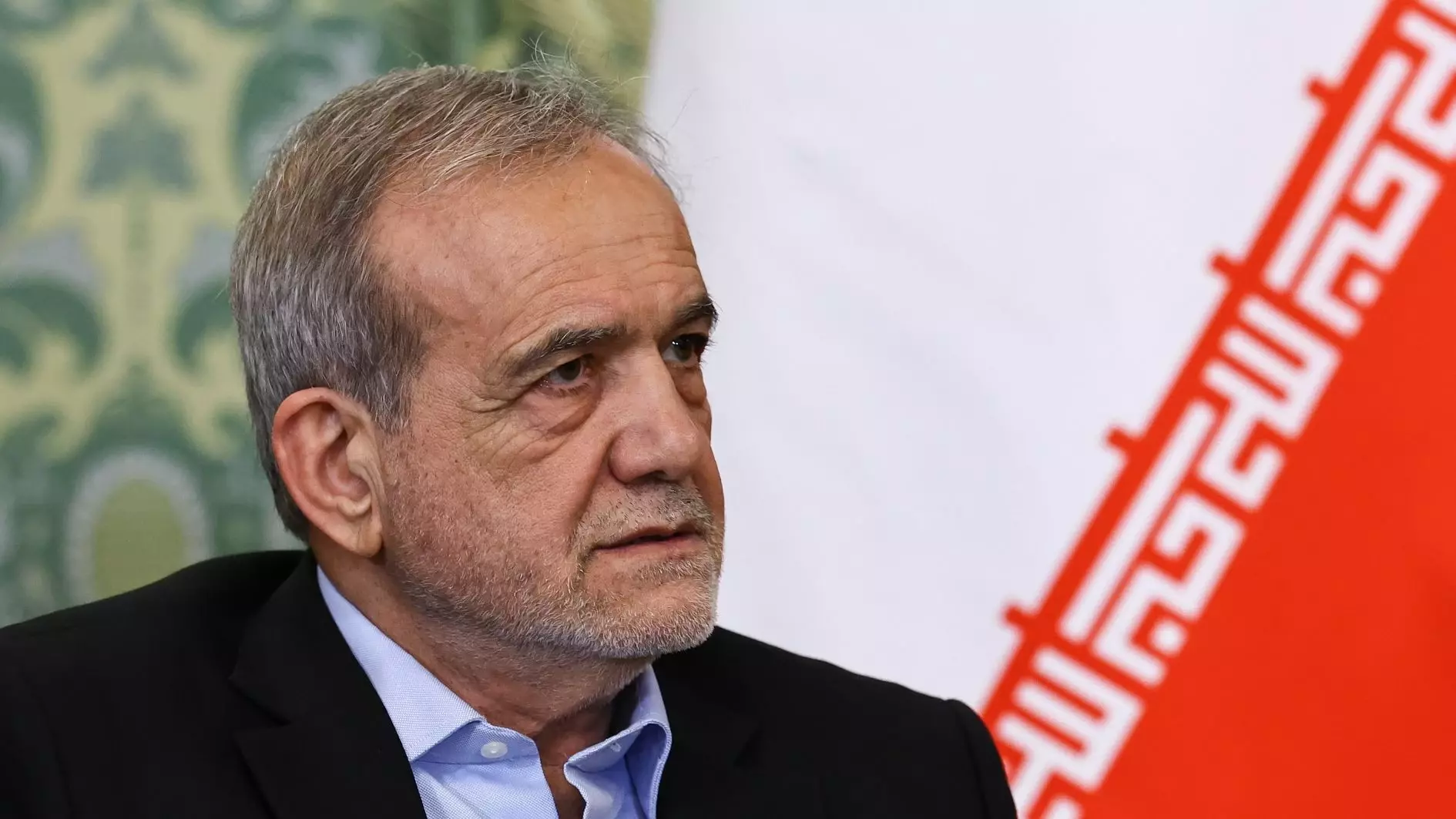A semi-official report published on Sunday, July 13, stated that Iranian President Masoud Pezeshkian sustained a minor leg injury on June 16 when an Israeli airstrike struck a secure government facility in western Tehran. The strike reportedly targeted a meeting of the Supreme National Security Council, plunging Iran’s top leadership into immediate crisis mode.
During a high-level session of Iran’s Supreme National Security Council, a coordinated missile assault struck a key government facility in western Tehran. The attack involved six precision-guided missiles launched at the building’s main entry and exit points—tactics reminiscent of Israel’s attempted assassination of Hezbollah leader Hassan Nasrallah in Beirut. The blast caused a temporary power outage and widespread panic within the facility, which is located near the affluent Shahrak-e Gharb district.
Among those present at the time were Parliament Speaker Mohammad Bagher Ghalibaf, Judiciary Chief Gholam-Hossein Mohseni Ejei, and other top commanders and officials. Although the missile strike was executed with remarkable precision, all senior officials present—including President Masoud Pezeshkian—managed to survive, largely due to a pre-installed emergency hatch system designed for rapid evacuation in crisis scenarios. The hidden escape route proved critical in preventing fatalities, allowing the officials to exit the heavily damaged facility amid falling debris and power outages. However, the chaos and urgency of the escape led to several minor injuries, including a leg injury sustained by President Pezeshkian while navigating through the damaged lower levels of the building.
The Iranian Revolutionary Guard Corps (IRGC)-affiliated Fars News Agency noted that the level of accuracy in the Israeli strike has raised alarms within the regime, sparking an internal investigation into whether an insider helped coordinate the attack.
President Pezeshkian, who had previously accused Israel of plotting to kill him, confirmed in a recent interview with American journalist that the assassination attempt was real. “They made an attempt and responded as expected, but ultimately did not succeed,” he said.
The June 16 airstrike marked a critical escalation in a 12-day confrontation between Iran and Israel, during which Israeli forces allegedly carried out targeted operations that resulted in the deaths of several high-ranking Iranian military leaders and nuclear experts. Among the reported casualties are IRGC Commander Hossein Salami, Armed Forces Chief of Staff Mohammad Bagheri, and IRGC Aerospace Force head Amir Ali Hajizadeh.
Separate intelligence sources also suggested that Israel considered a direct strike on Supreme Leader Ayatollah Ali Khamenei during the conflict but ultimately aborted the plan due to the lack of a viable window of opportunity.
As tensions continue to spiral, Iranian authorities are tightening internal security protocols and vowing retaliation, while analysts warn that the region may be edging closer to full-scale war.
Iran Demands Security Guarantees Before Resuming Nuclear Talks with U.S. Amid Rising Tensions
Iran has signaled a conditional willingness to return to nuclear negotiations with the United States—but only if Washington offers concrete assurances that there will be no further military attacks against Iranian territory. In a speech delivered to foreign diplomats in Tehran on Saturday, Foreign Minister Abbas Araghchi stated that while Iran remains open to diplomacy regarding its nuclear program, the current climate of military escalation has made dialogue far more difficult.“
If the U.S. and others are serious about resuming nuclear talks, there must first be a firm guarantee that such hostile actions will not be repeated,” Araghchi said, referring specifically to the recent 12-day barrage of Israeli airstrikes on Iranian military and nuclear sites, as well as the U.S. airstrike on June 22. “The assault on our nuclear infrastructure has significantly undermined prospects for a diplomatic resolution.”
The statement comes amid Iran’s ongoing struggle to recover from a series of coordinated military strikes that have severely damaged its vital infrastructure. In the wake of the strikes, Iran halted its cooperation with the International Atomic Energy Agency (IAEA), forcing UN inspectors to leave the country. Araghchi confirmed that any future collaboration with the nuclear watchdog would now be handled on a “case-by-case” basis, dictated by Iran’s national interests and security considerations.
He also raised alarms over the safety hazards posed by the attacks, saying that the risk of radioactive contamination and unexploded ordnance at the bombed nuclear sites remained high. “The safety of both inspectors and surrounding areas must be prioritized. This is not only about diplomacy—it’s also a matter of public health and environmental security.”
Araghchi reiterated Iran’s unwavering commitment to continue enriching uranium within its own borders, a position long at odds with U.S. demands. While former U.S. President Donald Trump maintained that Iran should not be allowed to enrich uranium at all, Araghchi stressed that enrichment is a sovereign right Iran will not relinquish.
Tensions have escalated sharply following Israeli claims that Tehran was dangerously close to developing a nuclear weapon. Israeli authorities have justified the strikes as a necessary preemptive action, while both U.S. intelligence agencies and the International Atomic Energy Agency (IAEA) maintain that Iran has not maintained an organized nuclear weapons program since 2003.
However, Iran’s current uranium enrichment levels—reaching concentrations of up to 60% purity—have raised significant international concern, as they place the country perilously close to the threshold required for producing nuclear weapons. Although uranium enriched to 90% is considered weapons-grade, moving from 60% to 90% poses a comparatively small technical hurdle, especially when contrasted with the far greater challenge of advancing from the low-enriched levels used in civilian nuclear power—generally about 3–5%—to 60%. Iran’s ability to reach this advanced level of enrichment significantly reduces its “breakout time,” or the period required to produce sufficient fissile material for a nuclear weapon. This development has fueled concerns within the international community, as it may indicate a shift in Tehran’s nuclear ambitions and overall strategic posture. Though Tehran maintains that its nuclear program is purely for peaceful purposes, the proximity to weapons-grade enrichment raises alarm among Western powers and non-proliferation experts, who view it as a dangerous step toward the possibility of weaponization.
In an interview published on Monday, Iranian President Masoud Pezeshkian disclosed that the U.S. airstrikes inflicted such extensive damage on the country’s nuclear infrastructure that authorities have still been unable to carry out a comprehensive evaluation of the destruction. “The damage is vast and access is still limited,” he said, underscoring the long-term impact of the attacks on Iran’s civilian nuclear capabilities.
As diplomatic options narrow and Iran’s leadership hardens its position, the international community now faces growing uncertainty over the future of nuclear diplomacy in the region.

